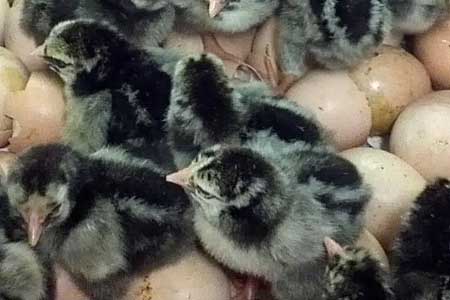
Before eggs can develop into chicks or other poultry, they must experience a specific amount of heat and humidity for a specific length of time. Most hens instinctively know what to do. Here are 6 reasons you may instead prefer to hatch poultry eggs in an incubator.
Reliability
Hens of your chosen breed may not be reliable setters or good mothers. Some breeds have been developed to be non setters or infrequent setters.
The least broody chickens tend to be those that lay the most eggs, such as the Mediterranean breeds and hybrid layers. Among ducks, Runners are generally less broody than most other breeds.
On the other hand, some breeds are especially well-known for being reliable broody hens and terrific mothers. Sikie bantams are near the top of the list. Among ducks, Mallards are typically the most reliable setters and mother hens.
But even among breeds that are known to be great broody hens, you won’t know for certain if a specific hen will be a good mother until she proves it by successfully hatching one or more broods. Even then, unexpected events may discourage a setting hen from remaining on her nest.
Hen & Egg Safety
Your facility or environment may not provide enough protection for a brooding hen. Waterfowl that prefer to brood outdoors, for example, are subject to disturbances by wildlife or household pets, and even the weather.
Even inside a coop, a snake or rodent might wander in and snack on the eggs incubating beneath a hen. If you have low tolerance for loss, the answer is to hatch eggs in an incubator.
More Eggs
Since a broody hen stops laying eggs, you may prefer to keep your hens laying and not setting. If you have hens primarily for eggs, you may therefore wish to discourage broodiness so your hens keep laying. You might then incubate just a few of those eggs whenever you want to raise additional chickens for your flock.
More Chicks
Another reason to hatch poultry eggs in a incubator is if you want, or need, more chicks than your hens’ capacity for hatching. For instance, you might have a rare or valuable breed and want to hatch as many of their eggs as possible. Or you may wish to raise chicks outside the normal brooding season.
Poultry exhibition is a project that requires rearing large numbers of chicks. That gives you a better chance of finding the perfect show bird. And for some breeds, hatching at just the right time (which doesn’t always coincide with having broody hens) ensures the birds will be prime for show season.
Working to preserve or restore an endangered breed similarly requires maximizing the number of chicks you raise for future breeding. The Livestock Conservancy has developed a five year breeding plan (pages 19-20) for recovering endangered dual-purpose breeds. Using an incubator facilitates sticking to the plan.
Sustainability
Self-sufficiency is the aim of a sustainable homestead. By maintaining a dual-purpose flock, you can hatch your own replacement hens and raise the surplus roosters for meat. Hatching in both spring and fall lets you spread the time periods when pullets start laying and roosters are ready to butcher.
Further, by breeding your own chickens, over the years you will develop hens that are well acclimated to your particular locale. And hatching your own replacement hens is a good biosecurity measure to prevent introducing diseases.
Fun & Educational
A big reason to hatch poultry eggs in an incubator is that it’s a fun and educational activity for poultry enthusiasts of all ages. Being able to monitor the eggs as they progress toward hatching is an especially terrific project for kids in a classroom or who are home schooled.
More Incubation Info
- Selecting the Best Chicken Egg Incubator
- Tips for Hatching Chicken Eggs in an Incubator
- Egg Incubation: Should You Help Chickens Hatch?
And that’s today’s news from the Cackle Coop.
Gail Damerow is the author of Hatching & Brooding Your Own Chicks: Chickens, Turkeys, Ducks, Geese, Guinea Fowl.

